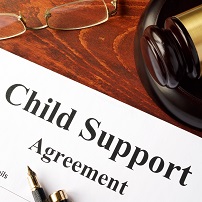Addressing a Child’s Special Needs in Child Support Proceedings

Child support agreement on an office table.
In a report issued this month, the Centers for Disease Control and Prevention (CDC) reported that the rate of children diagnosed with autism has increased nationally from 1 in 68 in 2016 to 1 in 59. See New Jersey Autism Prevalence Rate Rises to 1 in 34, Autism NJ, https://www.autismnj.org/prevalence-rates. Additionally, New Jersey continues to lead and substantially surpass that national average, with 1 in 34 children in our state having an autism diagnosis. Id.
It has long been acknowledged that couples with special needs children have a higher rate of divorce than those who do not. See Theresa Lyons, Divorce and Special Needs Children, https://www.lyonspc.com/divorce-special-children/. Whether through a divorce or as a separate proceeding, parents of a special needs child should ensure that the exceptional needs related to the care of that child are appropriately considered in the child support award.
Parenting a child with special needs, including gifted children, presents unique circumstances that courts may take into consideration in a child support proceeding. Many times, families with children that fall within this category have exceptional expenses above and beyond the expenses related to a child’s basic needs. These exceptional expenses may result from a child’s need for various therapies (behavioral, speech, occupational, etc.), medical specialists, prescriptions, counseling, assistive equipment, or necessary home modifications.
In standard cases, courts calculate child support using the mathematical formula provided by the Child Support Guidelines (“Guidelines”). Under the Guidelines, a child support award includes the costs associated with providing a child with housing, food, clothing, transportation, entertainment, and other typical miscellaneous expenses. The first $250 per year of unreimbursed healthcare expenses per child is also included in the amount of child support awarded.
However, when a case presents a child with special needs and exceptional expenses, a court may determine the amount of child support differently depending on the circumstances. If a child’s exceptional expenses are predictable and recurring, the court can add-on the non-custodial parent’s portion of those expenses to the basic child support award. Predictable and recurring expenses may include things like: unreimbursed medical expenses above $250 per year (e.g. co-pays or prescriptions), private education, etc. If there are exceptional expenses related to the care of a special needs child that are not predictable and recurring, the court will order the non-custodial parent to pay his or her share of the those expenses to the custodial parent directly. Alternatively, the court may decide to deviate from the Guidelines completely if it finds that doing so is in the best interests of a child.
Addressing child support for a special needs child can be complicated. Luckily, our skilled and knowledgeable divorce lawyers in New Jersey at Lyons & Associates are available to speak with you and answer any questions that you may have. We invite you to contact us online or give us a call at our office at 908-575-9777 to schedule a private consultation.
Written by: Joanna Adu, Esq.


